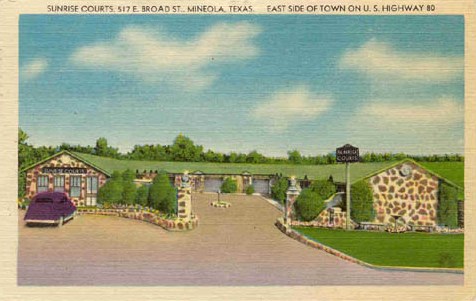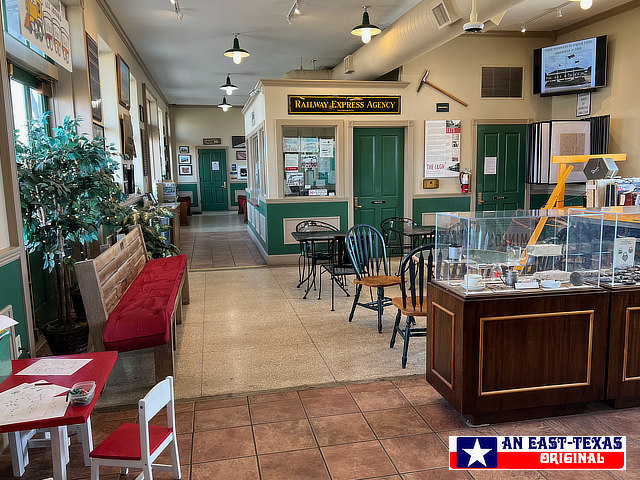Mineola Texas
Located north of Tyler at the intersection of U.S. Highway 69 and Historic U.S. Highway 80 is the City of Mineola in Wood County. Its population is about 5,000 residents as of the 2020 Federal Census. Elevation is 417 feet above sea level.
Mineola has sometimes been called “the forks of the river,” due to its proximity to the Sabine River, Lake Fork Creek, Big Sandy and Little Sandy creeks.
The Mineola Nature Preserve
The Mineola Nature Preserve consists of 2,911 acres on Loop 564 along the Sabine River, and has facilities including wetlands, numerous hiking and equestrian trails, bee hives, extraordinary bird-watching, and more for the outdoor enthusiast.
More than a dozen man-made ponds are located on the property as well as walking trails and pavilions.
The preserve is open daily, from 7 a.m. to sunset. It is home to 193 species of birds, wildlife, buffalo and longhorn cattle. Pullen Pond at the preserve includes water habitats and outdoor classrooms that can be used as teaching opportunities: small ponds, waterfalls and dams, a running stream, wetlands, and deep water and shallow water concepts.
Texas Fisheries will stock the pond with catfish and East Texas Woods and Waters funded the construction of a fishing pier near the pond.
Lake Fork
At 27,264 acres and 315 miles of shoreline, Lake Fork was designed to be a premier bass fishing lake and currently holds records for 34 out of the Top 50 largemouth bass caught in Texas.
This popular lake located on the Sabine River in Hopkins, Rains and Wood Counties, 5 miles northwest of Quitman, and north of Mineola. It was impounded in 1980, and today reaches a depth of 70 feet.
Largemouth bass is the most popular sportfish in this reservoir. A combination of restrictive harvest regulations, stocking of Florida strain largemouth, and abundant habitat has contributed to Lake Fork's development as one of the country's premier trophy bass lakes.
| about Lake Fork |
The Mineola Windmill ... and a Bit of Mineola History
The city government was organized in 1873, a post office opened in 1875, and the town incorporated in 1877.
Water is important in any community, and Mineola's most famous public well was located at the intersection of U.S. Highway 80 and Johnson Street. Mineola became known for the mineral water found in it, which was detected during the drilling for salt in the late 1800s after the salt dome in Grand Saline was discovered. The well was thought to have therapeutic, healing properties to combat issues such as rheumatism, gout and diabetes, and the city shipped its mineral water across the country.
In 1896, community leaders decided to install a windmill to help satisfy Mineola's growing water needs. The windmill, from the Aermotor Windmill Company of San Angelo Texas, rested atop a 60-foot tower, and featured a 3,000 gallon cypress tank and watering trough for livestock. In later years the city council voted to put a bell on top of the well to announce fires to the public.
In 2011, the Mineola Historical Museum board has launched a project to create a half-size replica of the historical and cypress tank.
Mineola in the 20th Century
In its early years, Mineola was active in the manufacturing of railroad ties and other lumber products. In addition, area farms produced cotton, livestock, fruit, and berries.
The arrival of improved highways and roads, the Magnolia Pipeline Company gas line, and the construction of a railroad terminal spurred Mineola growth in the 1920s. The discovery of oil in Wood County and construction of the Texas & Pacific Railway prompted additional growth in the 1940s.
Other communities located on historic U.S. Highway 80 include Grand Saline to the west, and Gladewater, Longview and Marshall to the east.
The T&P in MineolaThe discovery of oil in Wood County and construction of the Texas & Pacific Railway (T&P) prompted additional growth in the 1940s. From 1974 until 1996, the Amtrak Texas Eagle and its predecessor trains passed through Mineola without stopping. However, community leaders convinced Amtrak to make their city a stop, based on creative local marketing and a promise to renovate the train station. Today, the Mineola depot has been restored and serves as Transportation Plaza, hosting the Depot Museum and the Mineola Amtrak Station. |
|
Interior view of the Mineola Railroad Depot
|
Mineola Texas Motels and Accommodations
While Mineola has several motels and other accommodations, some visitors to East Texas choose the wide variety and greater number of hotels and motels available in nearby Tyler.
Accommodations in Tyler include a Hampton Inn, Holiday Inn Select, Hilton Garden Inn, Holiday Inn Express, Country Inn & Suites, Residence Inn, Fairfield Inn, and others.
Area Attractions Near Mineola
Popular Mineola area attractions include various antique malls and shops, the Mineola Historical Museum, nearby Lake Fork and Lake Hawkins, and the Mineola Nature Preserve. At 27,690 acres and 315 miles of shoreline, Lake Fork was designed to be a premier bass fishing lake and currently holds records for 34 out of the Top 50 largemouth bass caught in Texas.
For more information, visit the Mineola Chamber of Commerce. We also recommend a visit to the website of the City of Mineola and the Mineola Historical Museum.
While visiting Mineola and the Tyler area, you may want to take other interesting day trips in several directions:
- Jefferson - antiques, Jay Gould's railroad car, Jefferson Carnegie Library, steam train rides, steamboats on Caddo Lake, B&Bs
- Gladewater - antique capitol of East Texas, Gusher Days, Roundup Rodeo, Helen Lee Daffodil Gardens
- Gilmer - East Texas Yamboree, Historic Upshur Museum, Lake Gilmer
- Kilgore - home of the East Texas Oil Museum and Kilgore College
- Longview - Gregg County Fair & Exposition, Longview Museum of Fine Arts, R.G. LeTourneau Museum, Great Texas Balloon Race, historic buildings, shopping, restaurants
- Marshall - Michelson Museum of Art, Starr Family home State Historic Park, Harrison County Historical Museum, Ginocchio Hotel, T&P Railroad Museum, Christmas Wonderland of Lights
- Canton - First Monday Trade Days, Texas Horse Park, Splash Kingdom Water Park
- Tyler - Municipal Rose Garden, TJC Planetarium, Caldwell Zoo, Tyler Museum of Art, Lake Tyler, Rose Rudman Recreational Trail, Cotton Belt Depot, Goodman-LeGrand House
- Lake Tyler - swimming, boating, fishing, skiing close-in to Tyler
- Lake Fork - At 27,264 acres and 315 miles of shoreline, Lake Fork was designed to be a premier bass fishing lake and currently holds records for 34 out of the Top 50 largemouth bass caught in Texas.
Historical Postcard - Sunrise Courts, 517 E. Broad Street, Mineola, Texas
East Side of Town on U.S. Highway 80


Map of U.S. Highway 80 from the Texas-Louisiana state line near Waskom to Dallas showing the location of Mineola |




